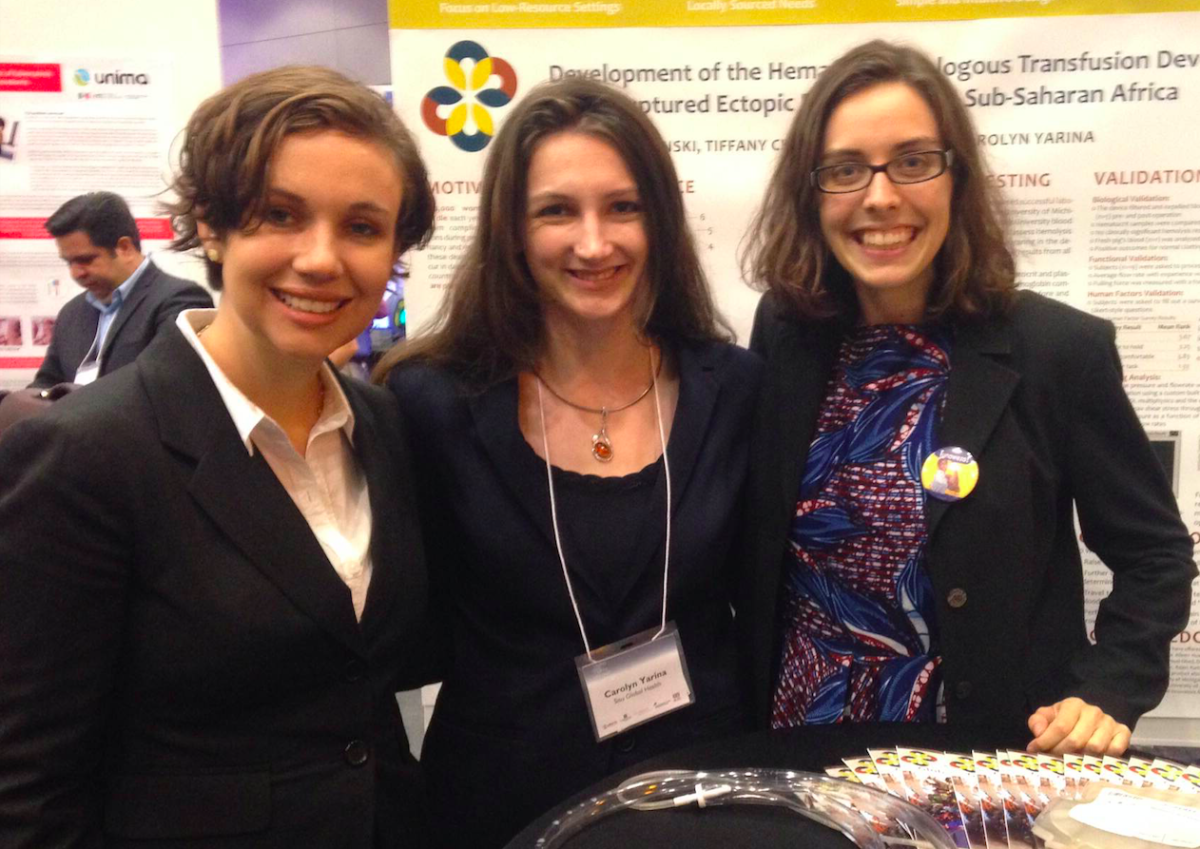Katie Kirsch did not expect a move to Baltimore. Wrapped in a pashmina scarf in Baltimore’s Harbor East, she sips her chai and shrugs her shoulders, “We were destination agnostic.”
Kirsch is the chief marketing officer of Sisu Global Health, a startup that creates medical devices for emerging markets. Sisu got its start in Grand Rapids, Mich., but acceptance into DreamIt Ventures’ Baltimore Health IT accelerator had them pick up and move east.
“Baltimore made sense,” said Kirsch. Along with her two partners, Carolyn Yarina and Gillian Henker, Sisu desired better ties to the domestic medical world working in emerging markets. Home of Johns Hopkins Hospital and non-governmental organizations like Jphiego that focus on international health issues, Baltimore did make a lot of sense.
At its core, Sisu is attempting to revolutionize how blood transfusions happen in developing nations.
“Eighty percent of the today’s medical equipment is designed for 10 percent of the world,” says Kirsch. Through human centered design, Sisu looks to change that.
Sisu’s flagship product is the Hemafuse. It is a hand-operated device that pumps blood from a patient suffering from an internal hemorrhage to a blood bag allowing the blood to be reused. The process is called autotransfusion, and the value of this product is exceptional.

First, the product is affordable. The device will be given to surgical suites for free, and the hospital will buy filters that cost about the price of a pint of blood. Each patient receives a new filter, but the device can be used up to 50 times before needing to be replaced. The cost savings exist for both the service provider and the patient. The current alternative, cell saver machines, can cost up to $30,000 and another $400 per use. On top of that, if you have to use donated blood it can cost anywhere from $60-$200 per pint. One filter for the Hemafuse can transfuse up to four or five pints of blood, saving money for everyone involved.
Second, it will improve healthcare in underserved countries. As a last resort, autotransfusions are accomplished in many hospitals with soup ladles and gauze.
That bears repeating: People experiencing an internal hemorrhage have a kitchen-grade stainless steel spoon inserted in their body cavity and then that blood is filtered by a piece of gauze. The Hemafuse creates a contained environment for the autotransfusion, and by utilizing the person’s own blood it is healthier for the patient. The Hemafuse is far and beyond cleaner and safer than your run-of-the-mill, spoon-based alternative.
https://youtu.be/g2ZhfDWd4gM
In Baltimore, Sisu has continued pre-clinical testing. By partnering with Hopkins, they tested the validity of their product before engaging with their first round of clinical (read: human) tests. Planned for the third quarter of 2015, Sisu will be going to Harare, Zimbabwe for Hemafuse’s first human testing.
Hopkins is doing more than testing the Hemafuse, they also bought a piece of the company.
And this is the bigger story, since coming to Baltimore in January, the team at Sisu has had the opportunity to do more than test their product. DreamIt has helped them find new funders, blood experts, and help clean up internal systems and procedures to improve the efficiency and clarity of the company.
“They’ve been great,” said Jason Hardebeck, the managing director of DreamIt Health Baltimore. “They fit right in to the social activities and professional opportunities.”
Hardebeck explains that DreamIt does not favor any one of their four domestic locations, but rather the opportunities provided in that city. “For Baltimore and myself, we want to attract and retain the best and the brightest as we build the ecosystem and our alumni base,” Hardebeck said. “They can help the new cohorts as we grow, share best practices and anything that helps a new company acclimate.”
Over half way done with their time at DreamIt, Kirsch and the others have a decision to make: do they stay in Baltimore? There is no definitive answer yet, but Kirsch says that the local networks and proximity to supporters and funders in D.C. has them leaning towards staying.
“It’s not Grand Rapids, but the cost of living is also pretty great,” said Kirsch.
This DreamIt startup is bringing safer blood transfusions to the developing world







